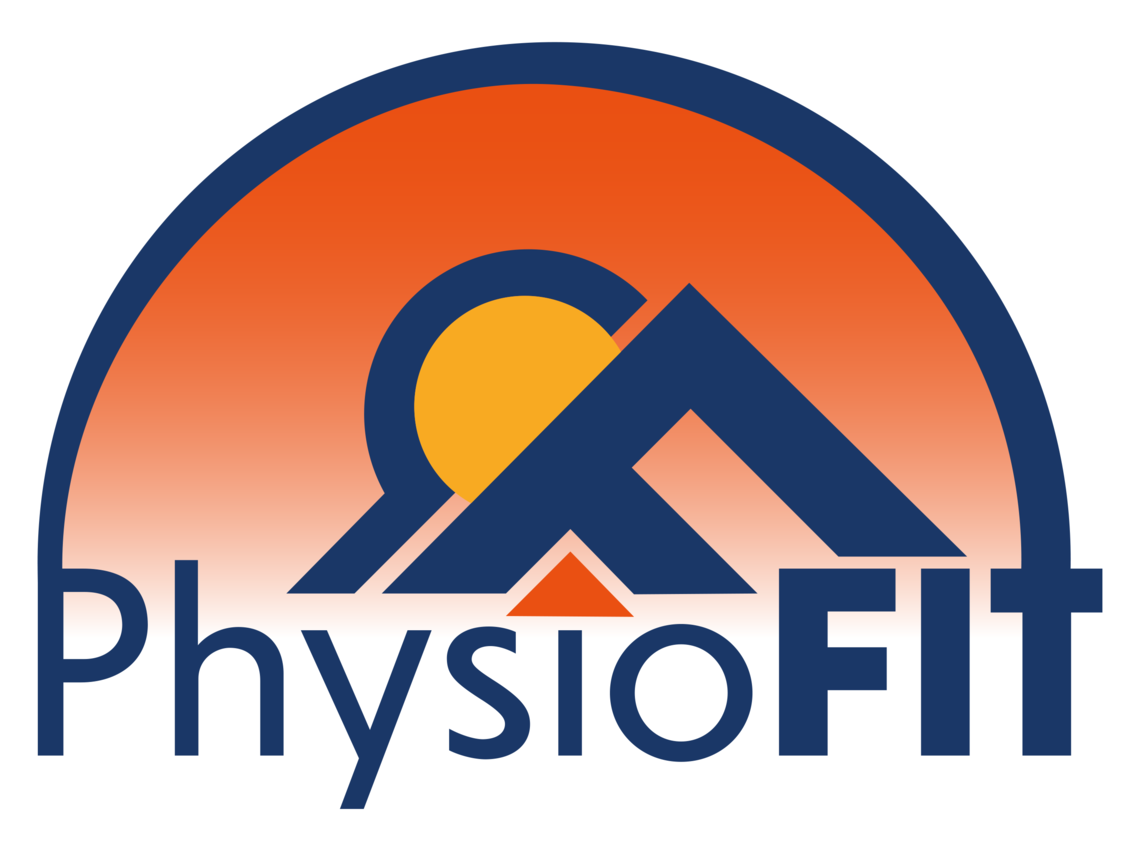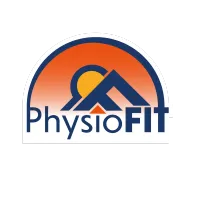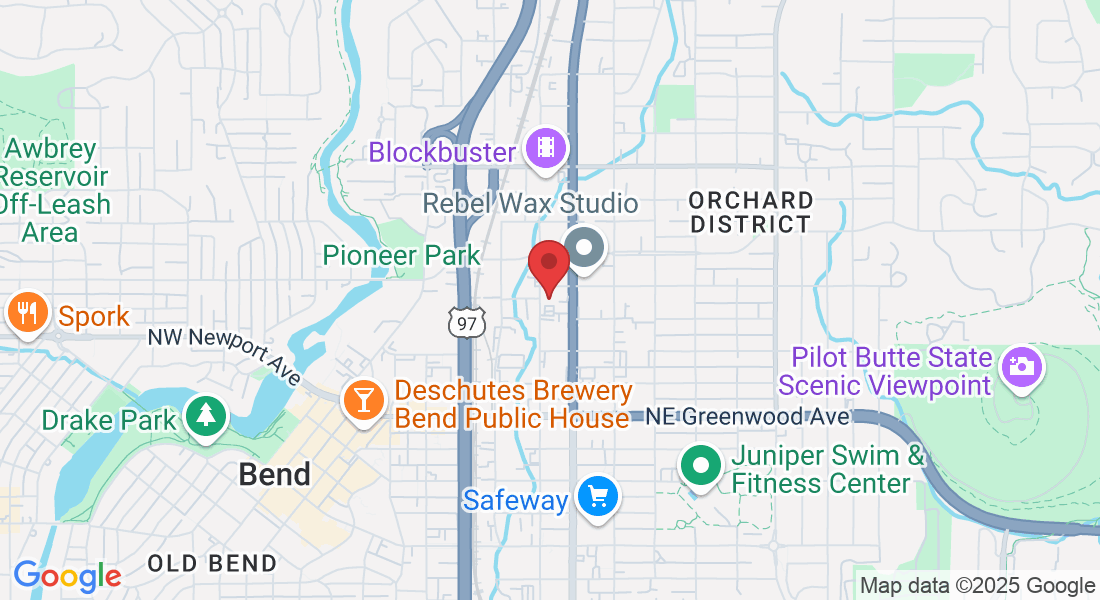Bike Fitting
Revolutionize Your Ride with a Bike Fitting at PhysioFIT
Welcome to PhysioFIT's bike fitting service, where your cycling experience is transformed. Our expert, Tanner Sommers, PT, DPT, brings unparalleled expertise in physical therapy and bike fitting to ensure you get the most out of every ride. Whether you're a seasoned athlete, a weekend warrior, or a daily commuter, our bike fitting service is tailored to meet your unique needs and goals.
Bike fittings at PhysioFIT are not just for professional athletes; they are for everyone who rides a bike. Our individualized approach caters to commuters, recreational riders, local athletes, triathletes, and mountain bikers. No matter your skill level or training background, a custom bike fitting can significantly enhance your riding experience.
The Many Benefits of a Proper Bike Fit
For Athletes: A proper bike fit significantly enhances athletic performance by aligning the rider's posture and bike mechanics to prevent injuries.
It optimizes the engagement of the right muscle groups, leading to increased power output and efficiency in pedaling, which is crucial for competitive cycling.
For Recreational Riders: Personalized bike fitting elevates the overall biking experience, ensuring greater comfort and enjoyment during rides.
It minimizes the likelihood of overuse injuries by correctly distributing the rider's weight and improving riding technique.
Riders receive valuable education on making adjustments to their bikes, which can provide immediate pain relief and prevent future discomfort.
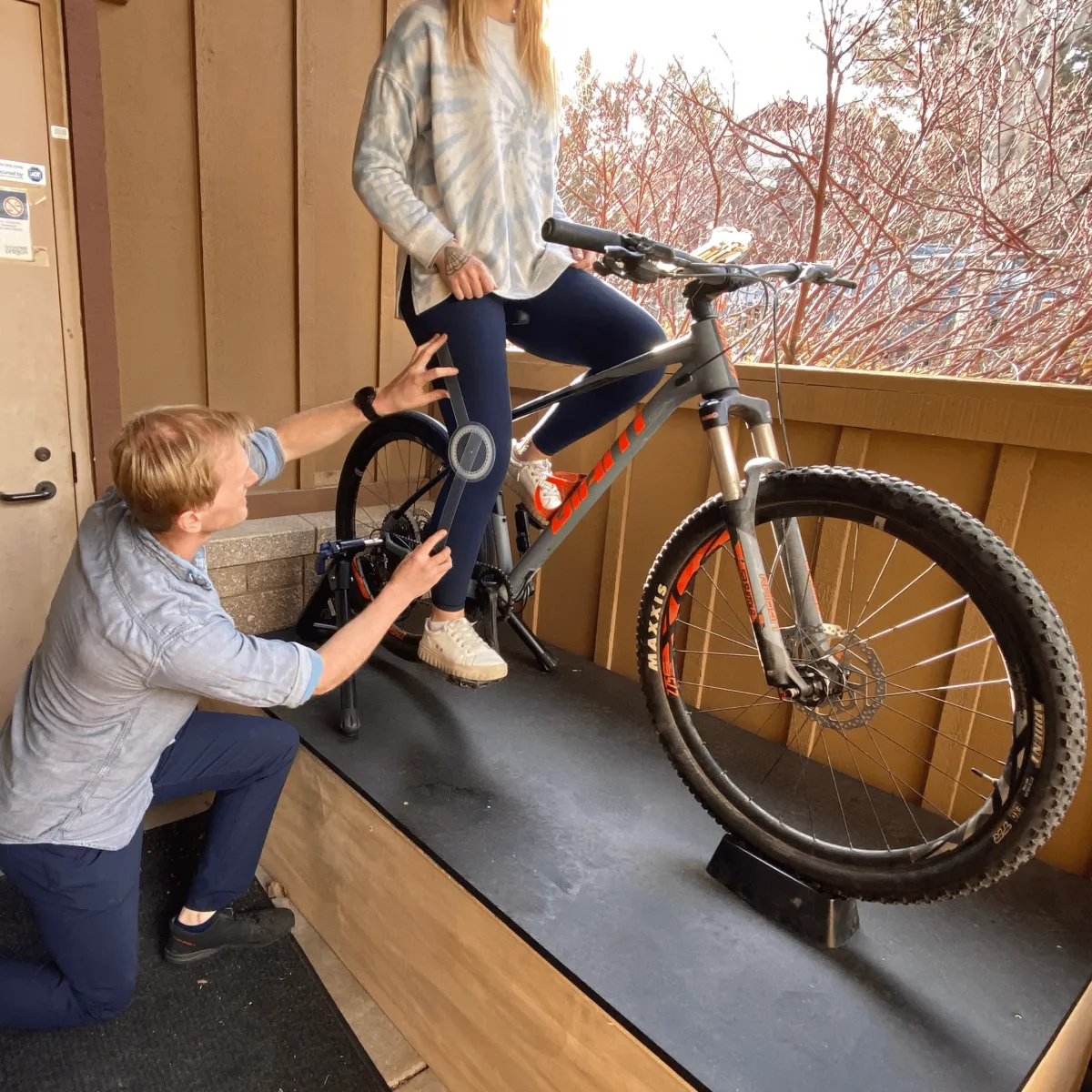
What Does a Bike Fitting Involve?
Embarking on a bike fitting session at PhysioFIT is a comprehensive process designed to tailor your cycling experience to your body's unique requirements, lasting between 60 to 90 minutes. Led by the skilled hands of Tanner Sommers, PT, DPT, each session begins with a detailed assessment of your cycling goals, physical attributes, and any specific needs arising from unique conditions such as disabilities or the necessity for adaptive equipment.
Tanner employs a holistic approach, ensuring that the bike fitting transcends traditional measurements. He meticulously analyzes your biomechanics, considering factors like flexibility, limb length, and joint mobility, to customize the bike to your physiology. This customization is crucial not only for comfort but also for efficiency and power optimization during your ride.
Throughout the fitting, Tanner also provides personalized interventions that may include corrective exercises, stretches, or technique adjustments to enhance your cycling posture and prevent injuries. Moreover, he offers tailored education on how to maintain the ideal bike fit, addressing any concerns related to bicycle ergonomics. This education often encompasses guidance on self-assessment and making minor adjustments at home, ensuring your bike continues to fit perfectly as your body adapts and cycling proficiency evolves.
The fitting session is not just a one-time adjustment; it's an educational experience that empowers you with knowledge about your body's interaction with your bike. This session ultimately aims to address and alleviate any bicycle-related injuries or discomforts, ensuring that every journey you take is both enjoyable and ergonomically beneficial.
The Importance of a Regular Bike Fitting
Cycling is not a static sport – as you pedal forward, your body is also advancing in its capabilities and conditioning. This dynamic progression calls for an equally dynamic approach to how you fit your bicycle. Regular bike fittings are a cornerstone of maintaining peak performance and comfort. Here's why making bike fittings a regular part of your cycling routine is indispensable:
Adaptation to Physical Changes: As you cycle more, your body will naturally develop in strength, flexibility, and endurance. Regular bike fittings ensure that your bicycle is always aligned with these evolving physical attributes.
Injury Prevention: Over time, even minor misalignments can lead to discomfort or injury. Consistent bike fittings can preemptively identify and correct these issues before they become problematic.
Optimized Performance: As your skills improve, you may benefit from different settings that a bike fitting can provide, such as adjusting the seat height or handlebar reach to improve power and efficiency.
Enhanced Comfort: With regular use, bike components can shift or wear down. Regular fittings check and adjust these components to maintain the comfort you’re accustomed to during rides.
Alignment with Training Goals: Whether you're training for a race or building endurance, your bike should complement your goals. Regular fittings tweak your bike to match your training intensity and objectives.
Seasonal Adjustments: Changes in weather and seasons can affect your bike's performance and your comfort. Regular fittings can account for these variables, ensuring a comfortable ride year-round.
Personal Growth: As your cycling technique refines, what worked for you initially may no longer be ideal. Regular bike fittings adjust to your improved technique and riding style.
Technological Upgrades: If you upgrade your bike with new components, a fitting will ensure these new additions are perfectly configured to your body.
Aging Gracefully: As we age, our bodies require different support. Regular fittings can adapt your bike to your changing ergonomic needs over the years.
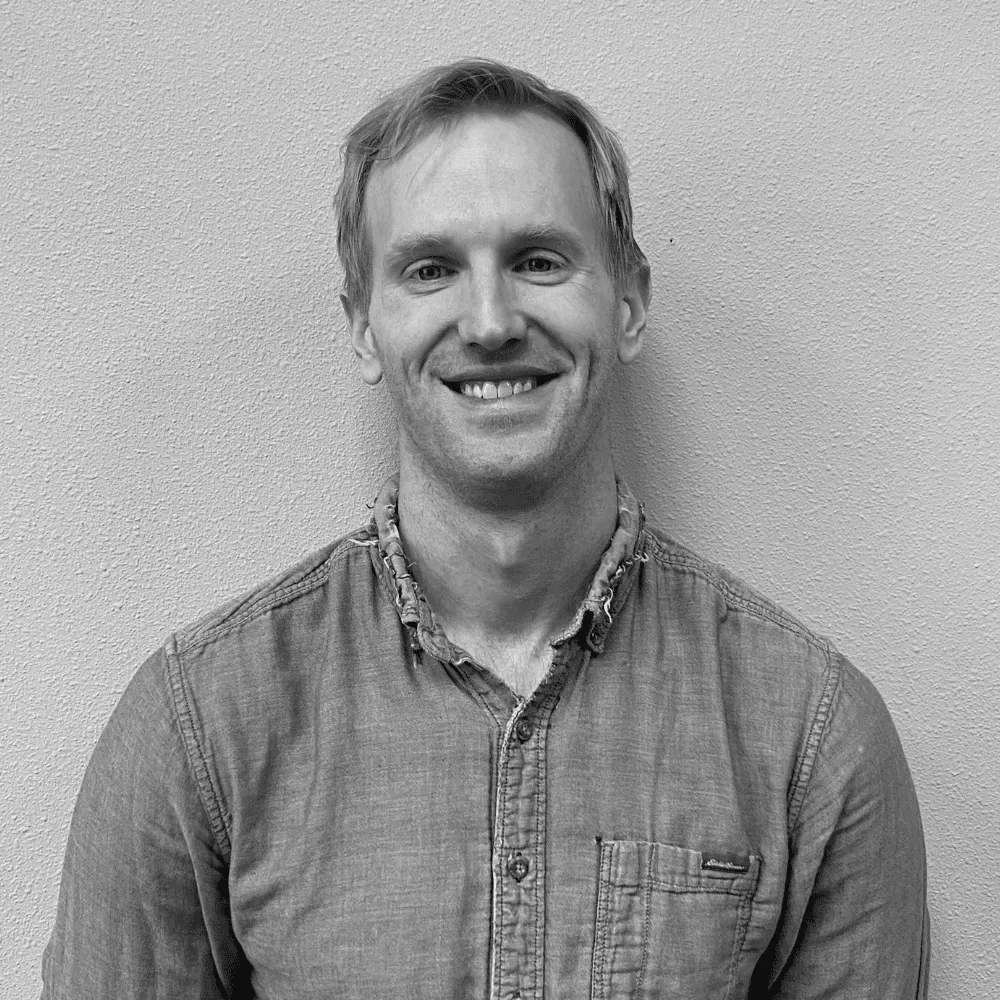
Meet Tanner Sommers, PT, DPT - Your Bike Fitting Expert
Tanner Sommers, a highly experienced physical therapist from Springfield, Illinois, leads our bike fitting services. With a background in Exercise Science and a Doctorate in Physical Therapy from Saint Louis University, Tanner is not only an expert in physical therapy but also a certified bike fitting specialist.
His holistic approach combines cutting-edge techniques like EMG/NCV, Level III dry needling, and virtual reality rehabilitation to provide a bike fitting experience that’s both scientific and personalized.
Please Note: The information provided on our website is intended for general education and is not a substitute for professional medical advice. Each individual's situation and body is different. Therefore, what may work for one person may not work for another. We care about your well-being and advise you to reach out to us to discuss your specific needs before implementing any advice from our website.
Your Source for All Things Physical Therapy in Bend Oregon
The PhysioBlog
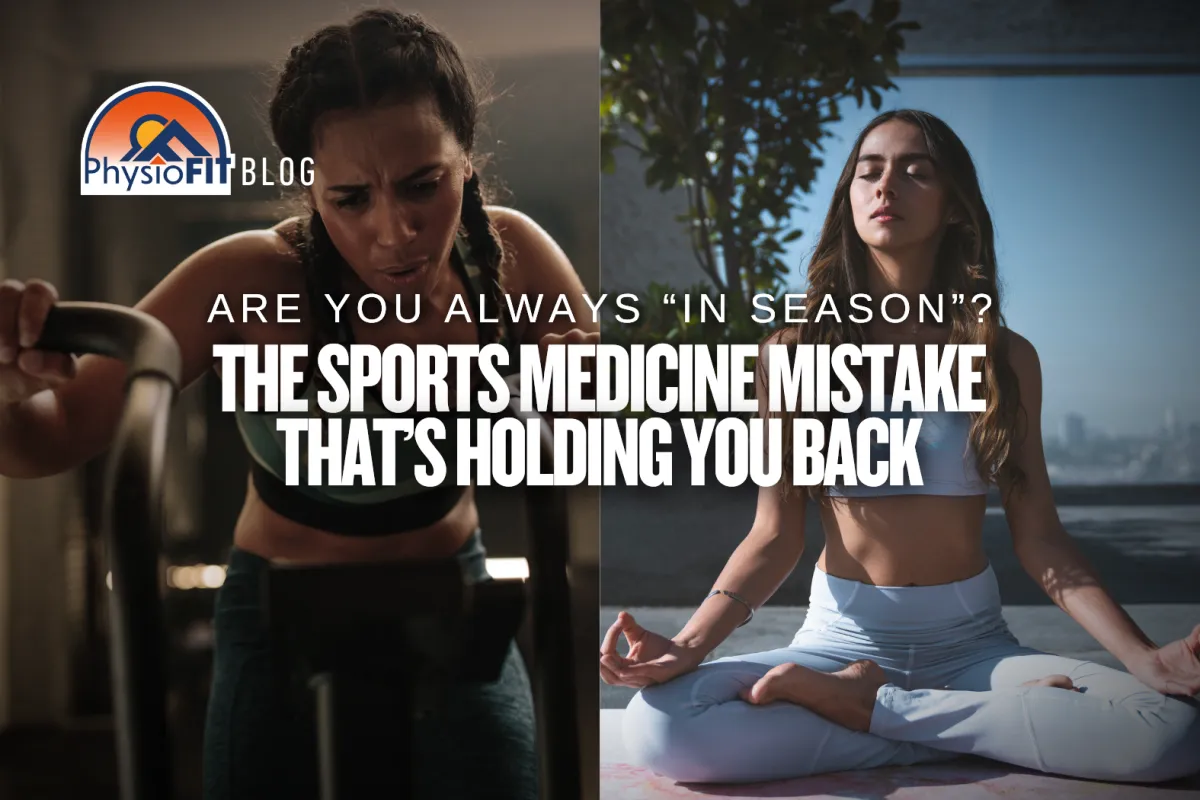
Avoid the "Always In Season" Training Mistake | PhysioFIT Bend Oregon
Whether you’re chasing PRs, hiking Pilot Butte every weekend, or grinding it out at the gym between work and family, here’s a hard truth most active adults in Bend, Oregon don’t want to hear:
You might be training like you’re always in season… and that’s a problem.
At PhysioFIT at The Performance Collective, we work with athletes of all kinds—from mountain bikers and CrossFitters to weekend warriors and backcountry skiers. And one of the most common mistakes we see? People treating their bodies like they're always on. Always pushing. Never pausing. Never rebuilding.
The Athlete's Secret: Training in Phases
Professional athletes don’t train the same way year-round. Their entire performance strategy is built around periodization—structured phases of stress, recovery, adaptation, and peak performance. That cycle revolves around two core phases:
1. In-Season Phase: Maintain + Compete
This is where most of us think we should live. The “go-time” mode. The sexy part. The performance stage.
But in-season training is not about growth—it’s about preservation. It’s about doing just enough to maintain your edge, avoid injury, and stay sharp during competition or peak activity windows.
Here’s what smart in-season training looks like:
Prioritizing recovery over volume
Avoiding spikes in load or intensity
Monitoring for fatigue and overuse warning signs
Maintaining mobility and joint health through prehab routines
Staying consistent but conservative with strength training
Think of it as treading water at a high level—not sinking, not surging.
2. Off-Season Phase: Rebuild + Reset
Now here’s where the magic happens—and it’s where most active adults fall short.
The off-season is not about getting soft. It’s about getting smart.
You’re not backing off because you’re weak. You’re backing off to build back stronger. This is your chance to:
✅ Heal micro-tears in muscle and connective tissue
✅ Address mobility restrictions and movement inefficiencies
✅ Rebalance strength across joints and muscle groups
✅ Develop better mechanics and foundational endurance
✅ Focus on the little things that make a big difference when you’re back in go-mode
Skipping this phase is like skipping leg day for your whole body. Eventually, the imbalance will catch up with you—usually in the form of nagging pain, poor performance, or injury.
Why Always Being “In-Season” Wears You Down
Here’s what we see at PhysioFIT all the time:
🚫 Low-grade fatigue that just won’t go away
🚫 Flat workouts even with plenty of sleep and nutrition
🚫 Nagging tendon pain in the knees, shoulders, or elbows
🚫 Back tightness or joint pain that creeps up after every session
🚫 A growing pile of PT sessions, chiro visits, and massage appointments that treat symptoms but not the root cause
The root cause? You never gave your body time to adapt.
Active Adults Need Off-Seasons More Than Pros
Here’s the kicker: If you’re not a professional athlete, you might need an off-season even more.
Why? Because you’re juggling stressors athletes don’t have to deal with:
Long work hours
Parenting
Poor sleep
Travel
Deadlines
Mental fatigue
All of these increase your overall load—even before you step into the gym. That’s why many of our Bend clients at PhysioFIT perform better once they adopt a smarter, season-based approach to their training.
How to Build Your Own Training Seasons (Without a Coach)
Even if you’re not prepping for the Olympics, you can use the same principles:
✅ Step 1: Pick Your “Competition Season”
Choose 1–2 times per year where you’ll push hard—races, ski trips, backpacking adventures, etc.
✅ Step 2: Plan a Structured Off-Season
2–3 months of reduced load, increased mobility work, and strength training to fix weak links.
✅ Step 3: Layer in a Pre-Season Phase
4–8 weeks before go-time, ramp up intensity and sport-specific training.
✅ Step 4: Check in with a Physio
Get assessed. Address compensations. Test your strength and mobility objectively. (We use force plates, dynamometers, and advanced movement screens at PhysioFIT.)
Conclusion
You can’t just keep hammering and expect to level up.
Recovery is the gateway to performance.
By learning to respect both the in-season and off-season phases, you’ll unlock:
✅ More gains
✅ Fewer injuries
✅ Better energy
✅ Longer athletic longevity
✅ More fun doing what you love
And that’s what we’re all about at PhysioFIT.
Ready to Reset?
If you’re stuck in permanent “go” mode and your body’s giving you warning signs, it’s time for a smarter approach. At PhysioFIT at The Performance Collective in Bend, Oregon, we help active adults and recreational athletes build personalized performance plans that respect the cycle—and get results.
Schedule a recovery & performance assessment with one of our sports therapy specialists today.
Sources:
Copyright PhysioFIT 2025 . All rights reserved
